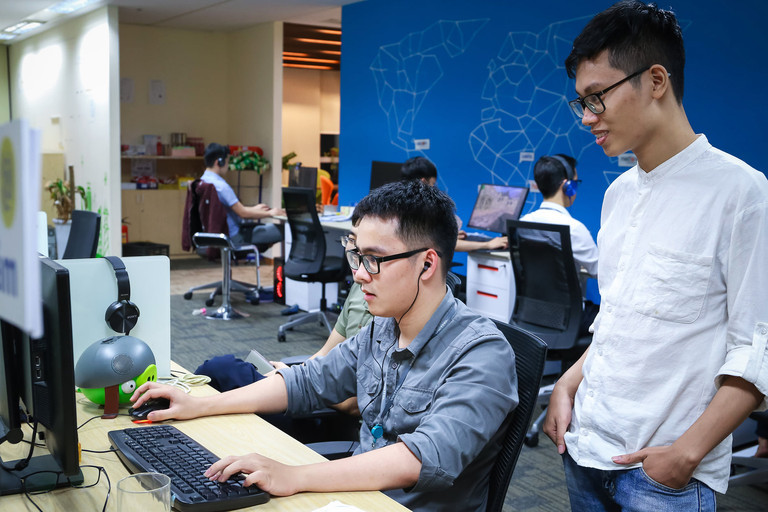
The Ministry of Communications and Information (MIC) has approved the development of a Vietnamese LLM and virtual assistant models for officers.
The platform needs to satisfy basic requirements, including the capability of being used on both websites and mobile phones; Vietnamese voice control interface support; easy integration with websites and Zalo OA, as well as other popular OTT apps in Vietnam; and data personalization.
For the virtual assistant training toolkit, the requirement is the acceptance of text data input for training. This tool must extract Vietnamese content from image files, and Vietnamese content from recording files at meetings, and press and media video files.
This is the first step by MIC to encourage Vietnamese technology firms to participate in the research and development of virtual assistants and Vietnamese LLM.
Nguyen Chi Thanh, deputy CEO of Viettel Solutions, said: “ChatGPT created a trend of using virtual assistants, even faster than the popularity of Facebook and other digital apps. The performance and the rapid development show the indispensable need for virtual assistants in society. In such conditions, developing Vietnamese speaking virtual assistants is necessary."
He said that if Vietnam cannot develop and master a national virtual assistant platform, Vietnamese data will fall into foreign hands.
“Through virtual assistants, foreign companies will find out Vietnamese thoughts, habits and tastes,” Thanh said, adding that this is a risk that needs to be prevented.
Doan Huu Hau from FPT, said the Make in Vietnam virtual assistants will promote national pride and self-respect. Vietnam missed the previous industrial revolutions, but now, with maturity in terms of knowledge and skills, Vietnamese are ready to build their own digital technology products.
Dream and reality
Analysts say they can see billions of dollars worth of capital in the world flowing into AI-based R&D (research and development) firms. After the appearance of ChatGPT, Microsoft spent $10 billion to acquire 49 percent of shares of OpenAI, the firm that created the No 1 virtual assistant. Google has poured big money into developing Bard AI with the ambition of becoming No1 virtual assistant.
In general, AI-based search costs are higher than normal inquiries because of investments in computing power infrastructure.
Competing with the technology giants is not easy. So, what is the path for Vietnam to follow to develop Make in Vietnam virtual assistants?
Thanh of Viettel Solutions said that developing Vietnamese language virtual assistants is feasible. He believes that Vietnamese can take advantage of the findings of other scientists. The job for technology firms is integrating Vietnamese knowledge into platforms.
The problem is that it is difficult for enterprises in different fields to create virtual assistants for themselves, because each needs specific knowledge. Therefore, if all the knowledge can be gathered in a data store, Vietnamese will be able to create a virtual assistant with diverse knowledge.
Since ChatGPT can serve as an excellent general virtual assistant, Vietnamese technology firms should focus on assistants with knowledge specifically serving Vietnamese businesses and governments.
Trong Dat